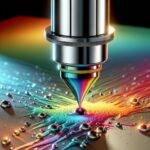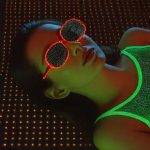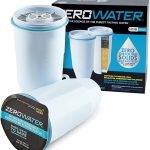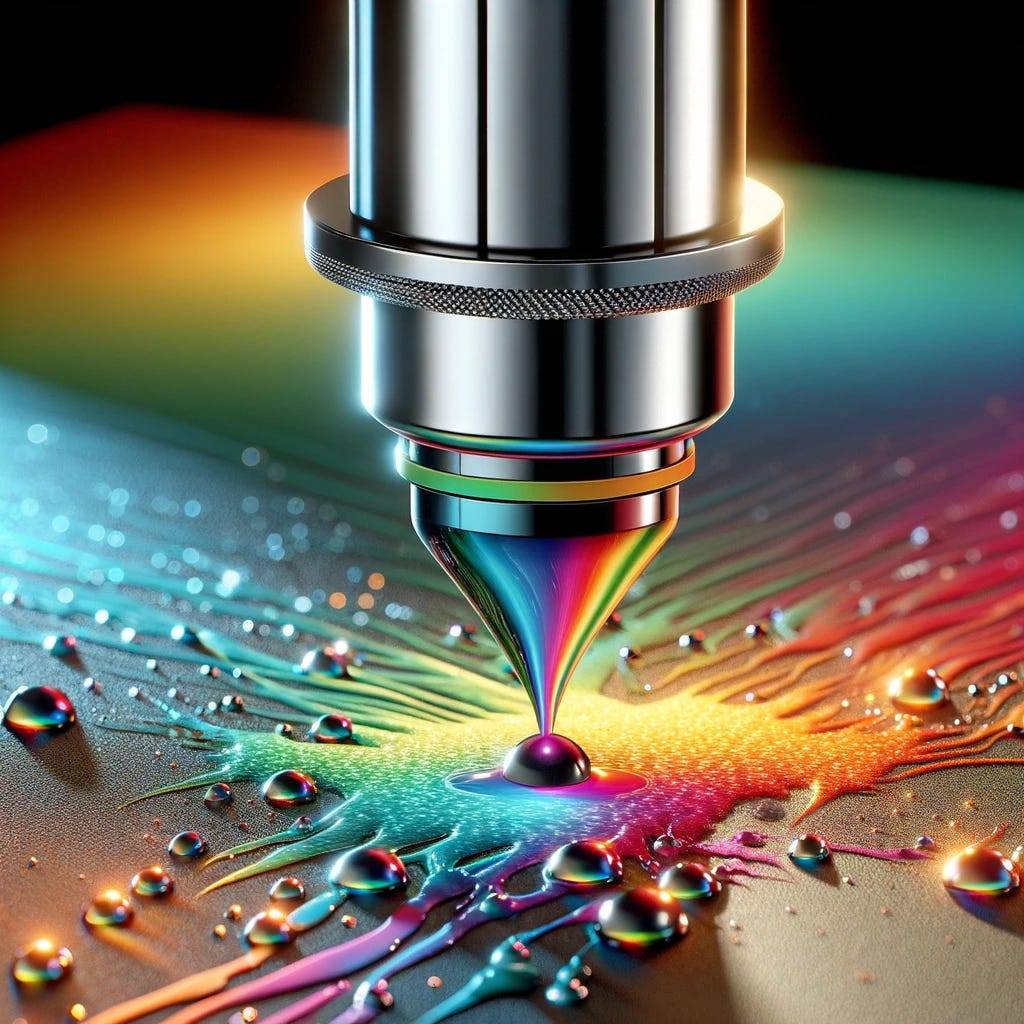
Inkjet printing, once confined to the realm of document and photo printing, has transformed into a groundbreaking tool for material science. By carefully controlling the deposition of picoliter-sized droplets, researchers can now create materials with incredible precision. This leap forward opens up a world where materials change color or properties in response to mechanical forces, heralding a new age of functional and smart materials.
Crafting the Perfect Inks
The journey begins with the quest for the perfect ink. Scientists meticulously blend polyurethane polymers of varying hardness with a special additive that lights up under mechanical stress. This concoction is then tested rigorously, ensuring it can flow smoothly through the printer’s nozzles to create patterns of unprecedented complexity.
The Art of Printing
Equipped with state-of-the-art inkjet printers, researchers embark on a delicate dance of deposition. Alternating layers of soft and hard polyurethanes are laid down with precision, each layer contributing to a material that can sense its own stress and respond visually. This process not only demands technological finesse but also an artistic touch to envision the materials of tomorrow.
To better understand the innovative leap in material science discussed in the article, let’s look at a graphical below of how different layers in multimaterial inkjet printing respond to stress.
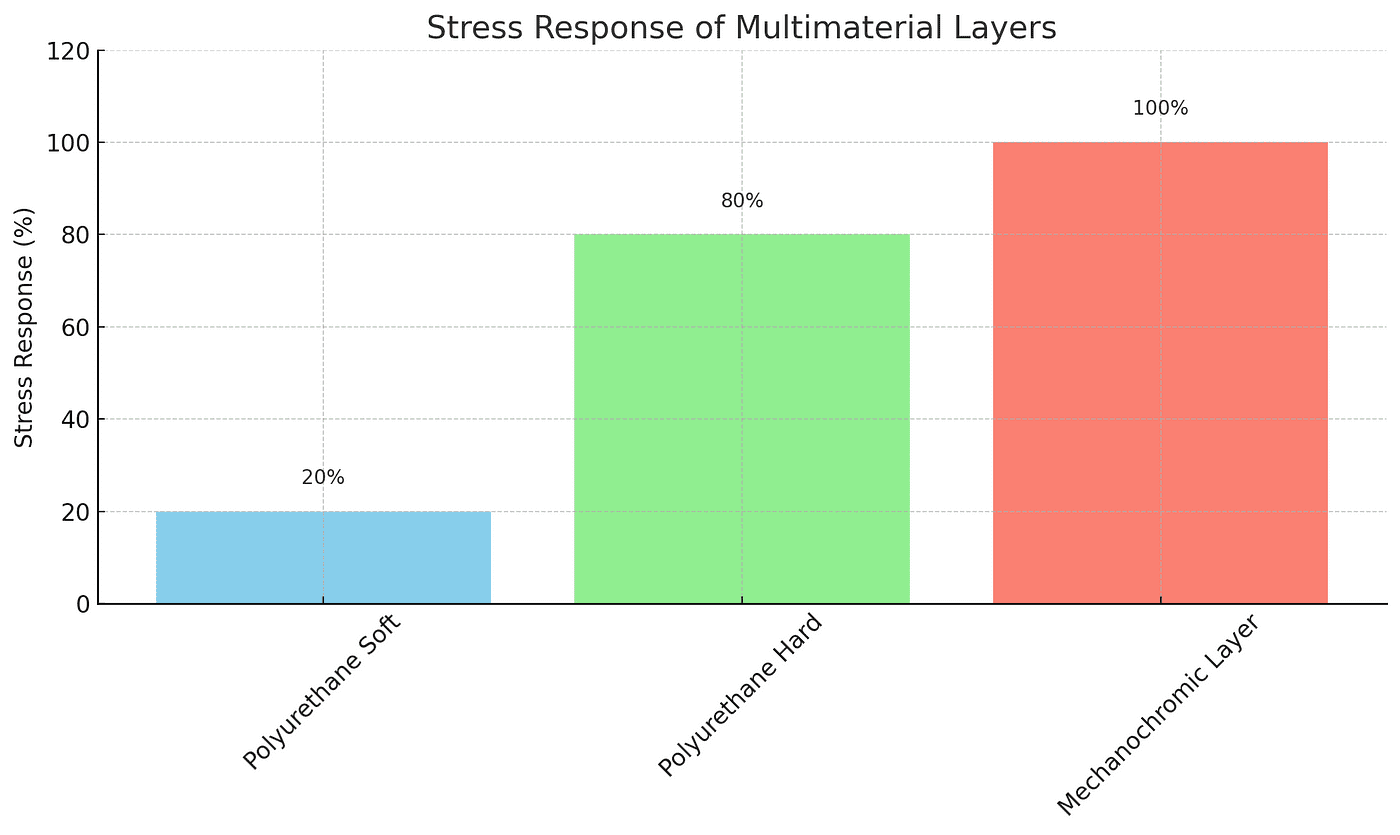
A Symphony of Color
Upon applying stress, these materials come alive with color. Like chameleons, they shift hues based on the forces they encounter. This magical transformation is not just visually stunning but carries profound implications for sensing and reporting stress in materials, opening doors to safer structures and innovative monitoring systems.
Beyond the Lab
The implications of this research stretch far into the future. Imagine buildings that warn of structural fatigue with a change in color or bridges that signal wear and tear visually. This technology could revolutionize safety in construction, automotive industries, and beyond, making our world not only more functional but also more interactive and responsive.
Color-Changing Bridges
Imagine a bridge that changes color when it’s under too much stress, alerting engineers to potential danger spots. This isn’t science fiction but a real possibility with the development of mechanochromic materials. These materials could one day save lives by making our infrastructure “speak” to us.
Invisible Ink Comes to Life
The inks used in this technology are like no other. They remain invisible until they’re needed, springing to life under pressure to reveal bright, vivid colors. This property could revolutionize security printing, creating documents that are nearly impossible to forge.
The Featherweight Champion
Despite their complex capabilities, these advanced materials don’t add significant weight or bulk. They integrate seamlessly into existing structures or materials, ensuring that adding functionality doesn’t mean sacrificing form or design.
A New Era of Wearables
Wearable technology could get a significant upgrade with these materials. Clothes could monitor the stress and strain of athletes in real-time, providing instant feedback on performance or the risk of injury. This could herald a new era of high-tech sports science.
The Environmental Watchdogs
These materials could serve as environmental watchdogs, changing color in response to pollutants or changes in temperature. This could provide a visually striking, immediate method of monitoring the health of our planet.
A Hopeful Horizon
As we stand on the brink of this new era of material science, it’s clear that the implications are as vast as they are inspiring. These developments promise a world where materials not only serve passive roles but actively participate in our safety, health, and environmental stewardship. The journey from the lab bench to real-world applications may be long and fraught with challenges, but the potential rewards promise to reshape our interaction with the material world. This is not just the future of printing; it’s the future of a more responsive, safer, and visually stunning world.
About Disruptive Concepts
Welcome to @Disruptive Concepts — your crystal ball into the future of technology. 🚀 Subscribe for new insight videos every Saturday!

